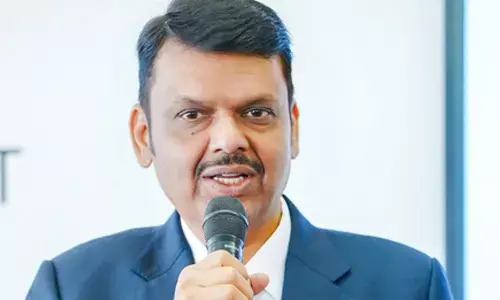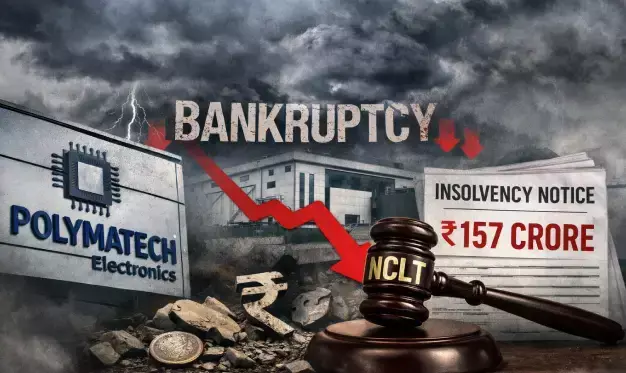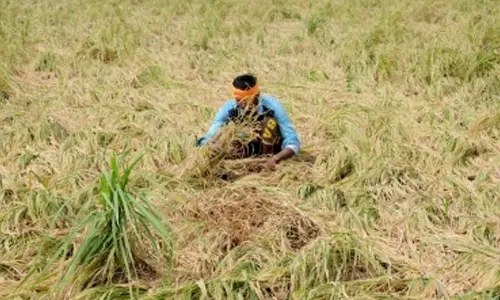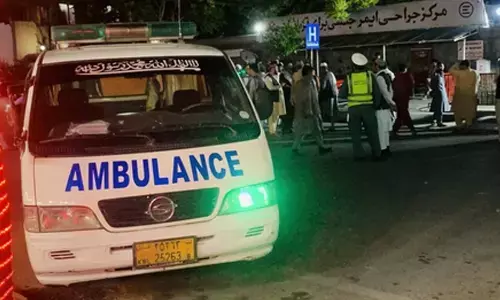PV Narasimha Rao: A leader who made us all proud
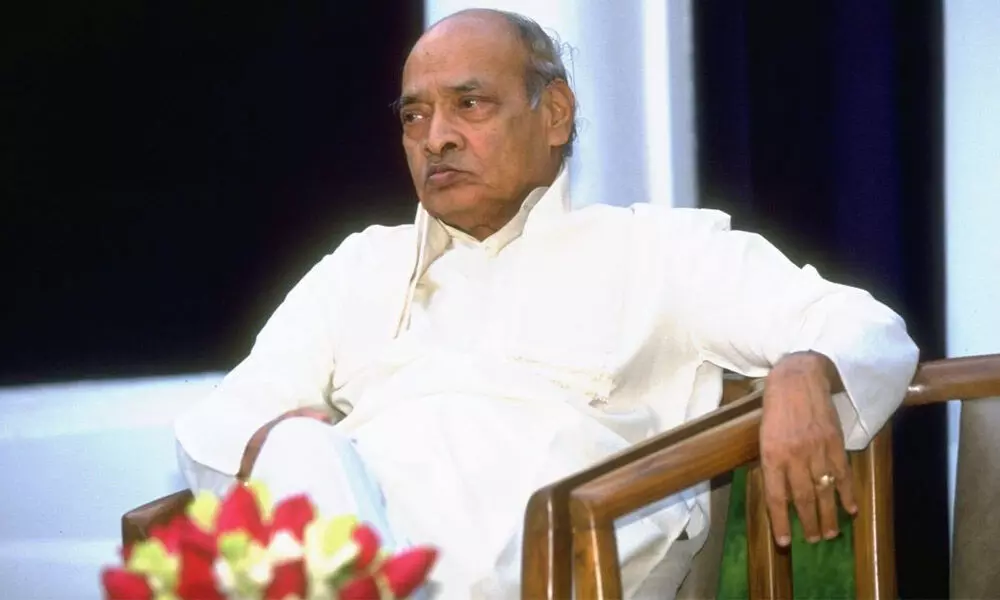
PV Narasimha Rao
In 1991, at the annual meet of World Economic Forum in Davos, the then Prime Minister of India Sri P.V. Narasimha Rao spelt out what was perhaps the most spectacular and ground breaking economic policy for the country, introducing the far reaching, big bang economic reforms to the world.
A tribute by his son PV Prabhakar Rao- In 1991, at the annual meet of World Economic Forum in Davos, the then Prime Minister of India Sri P.V. Narasimha Rao spelt out what was perhaps the most spectacular and ground breaking economic policy for the country, introducing the far reaching, big bang economic reforms to the world. His economic policy brought about a paradigm shift in not only the economy and how we Indians looked at our country, but in how the world looked at India.
P. V. Narasimha Rao, the man who made all of us proud, hailed from a humble village in Telangana and rose to the stature of the Prime Minister of the country due to his intellect, erudition and hard work. 2020-21 is the birth centenary year of this versatile genius. Very rightly, the Govt. of Telangana has celebrated his birth centenary year through events held in India and across the world. Thanks to CM KCR for taking up this cause in all earnestness and adding a splash of festivity and grandeur to the celebrations befitting the status of PM.
Narasimha Rao was a restless man, a revolutionary at heart who always strived for change. A relentless, burning desire to change things around him was the driving force for his reforms narrative which spanned over 3 decades and ranged from Prison reforms, Education reforms, Land reforms, New Education Policy, and Navodaya Schools, to the Look East Policy and the Economic Policy of 1991.
The impact of these economic reforms on the lives of Indians should not be underestimated. The smartphones in our hands, the choice of airline carriers, the 8 lane highways criss-crossing the country, the dynamic space programme, our nuclear power and even the vibrant IT industry that employs millions - all these are largely due to the vision of Sri P. V. Narasimha Rao. In a nutshell, he is the man who laid the foundations for today's aspirational and emerging India.
He believed that the country's growth depended on three key factors - meritocracy, pragmatism and personal integrity. Accordingly, he neither compromised on merit when it came to appointments in the key positions in government, nor did he complain about the circumstances he had to face or waste time in wishful thinking. William Ward once said "a pessimist complains about the wind, an optimist hopes for the wind to change, but a realist adjusts the sails" - this was exactly what Narasimha Rao did.
He converted the Balance of Payments crisis in 1991 to opportunity and introduced the Economic Reforms, the benefits of which we are enjoying today. Finally, it needs no mention that he was a man of the highest integrity and commitment. For him, India came first and serving the poorest of the poor was his top priority. In true pragmatic style, it didn't matter to him which ideology he pursued as long as it yielded results - they were all tools to achieve the same ends. He was aware that he was treading a difficult path, often quipping, "I lost one job following socialistic ideology, trying to implement land reforms, and as though to compensate it, I lost another pursuing a capitalistic ideology - trying to implement economic reforms". However, history has shown us that both his Land Reforms and economic reforms have immensely contributed to the great changes of his times.
It is these innate qualities of Narasimha Rao which changed our country and ushered in a new era. His term as Prime Minister is a watershed period for India - the history of post Independence India can be written in two parts, one before P. V. Narasimha Rao came to power and the other after his term.
Narasimha Rao was not only an exemplary statesman, but a polyglot who could converse in 14 languages. He was an avid reader and a prolific writer, and enjoyed music and theatre. He also had a prodigiously scientific bent of mind - though he was over 60 when he first saw a computer, he very quickly learnt so much about the technology that he could both do some coding, and also take a computer apart and reassemble it in no time.
He learnt to play the electronic keyboard at the age of 82 - six months before he passed, he told me that he was ready to give a concert on the keyboard. His obvious talents aside, his life serves as a lesson in always being ready to learn, despite the age. He exemplified the saying 'Shradhvan labhate gnanam' from the Bhagavat Gita. On this wonderful occasion of his birth centenary let us salute this legend. His various achievements, his personality and his philosophy are like an ocean - several facets are still to be unravelled.
Apara Chanakyudu
Captain Lakshmikantha Rao TRS MP- Pamulaparthi Venkata Narasimha Rao is no ordinary person. I was very closely associated with him since he happens to be my Chinanna (uncle). "When I was studying in fourth standard, Narasimha Rao launched a big movement against Nizams in all the villages taking out rallies, giving slogans against the rulers holding lanterns during night. The Razakars, private army of the Nizams, were looking for him and Rao had to go underground to hide from them.
Later, the Government took up police action and Hyderabad got liberated. Telangana was divided in the States- Reorganisation and Maharashtra, Karnataka and Andhra Pradesh came into existence.
Being a great visionary PV was instrumental in bringing the Land Ceiling Act at a time when there was strong resentment against this. He was a minister and went on to become Chief Minister of Andhra Pradesh. "He was a dynamic leader, who knew the needs of the people. I still remember his words to me... 'If we don't bring an Act like Land Ceiling, there will be a bloodbath. He had to lose the post of Chief Minister for bringing such an Act." PV was supportive of the Mulki rules (a certificate which was needed to get jobs in Telangana region).
The Andhra rulers influenced their national leadership and got the rules removed. PV then wanted to stay away from politics and was attracted towards agriculture... even now we consume the fruits from his Mango orchard. PV also took up cotton seeds production. that PV was the only Prime Minister to win the two no-confidence motions which were brought during the minority government. Before he became PM, the country was suffering with problems like lawlessness, Gurkha and Nagaland agitations, economic crisis, Gold was mortgaged in foreign countries and the situation of the country was weak.
After taking over the reins, he improved the economic situation, brought the gold back into the country, and improved the law and order situation in the country. He gave confidence to the industrial sector, he brought large foreign exchange reserves, and simplified the process for setting up industries. He is known as 'Apara Chanakyudu' and dedicated his life to the Congress party. But it is a matter of regred that the Congress party did not honour the leader who dedicated his life for the party. They did not permit to have his memorial in Delhi, did not allow his body to be taken to AICC office. They also denied cremation in the capital.
PV Madan Mohan, Journalist, PV's brother's son- We the family members are happy and thank the State Government for organising centenary birth celebrations of PV Narasimha Rao. We are all fortunate to be part of this great man. I request the government to make PV's birth and death anniversaries as calendar events to uphold his legacy forever. He taught us simplicity and to be the first man to help the needy. The government needs to extend the birth centenary celebrations as almost all the year leading to it lost in chaos due to coronavirus pandemic.
Chakilam Anil Kumar- My father Chakilam Srinivasa Rao and the legendry figure P V Narasimha Rao were great friends. My father was an MP when PV was the Chief Minister of undivided Andhra Pradesh. Both PV and my father Srinivas Rao were elected as MPs from the state in 1989 and worked collectively to strengthen the party in the state. I had the privilege to watch the great leader from close quarters as a kid as PV had given lot of importance to my father till his death. He even unveiled the statue of my father in 1998. The relationship between our two families is so great that even now I am maintaining that relationship with his family members.
C Hanumantha Rao- It is a matter of great pride for Telugu people that P V Narasimha Rao was the first Telugu person, especially from Telangana region to become the Prime Minister of India. He was well known for his good command over several languages and was a famous writer.
We used to meet regularly in New Delhi when I was a Planning Commission member. PV was keen about offering equal educational opportunities to all in the society. Though he was used to being silent most of the time, his silence also answered many questions. In fact his silence was his strength. He was the first person to bring revolutionary reforms in the Indian economy and laid a strong foundation for the economical development of the country when the Indian economy was on the decline. The country is enjoying the fruits of his reforms. I strongly believe that the Union government should announce Bharat Ratna to PV in recognition of his services. The younger generation should emulate his ideology and take him as an inspiration.
R Venkat Reddy, Vangara village ex-Sarpanch- I am not that of caliber who can speak about PV who triggered the economic growth of the nation by taking some bold decisions. Irrespective of positions he held, PV proved himself as a wizard. I met PV twice – once in Delhi in 1996 - during my stint as the Sarpanch of his native village. On his arrival to Vangara, he always touched the soil and prayed with folded hands. Such was his love for his village. The residents always remember his services to the nation and to his village.
Retired Prof M Panduranga Rao of the NIT, Warangal- My association with PV began in 1984 when the REC (now NIT) celebrated its Silver Jubilee. He was impressed by my design on SRSP flood flow canal and mid Manair reservoir, aimed at utilising Godavari floodwaters. Later, he laid foundation stone for the construction of flood flow canal in 1991. His article, Ramappa – A Symphony in Stone, published in The Illustrated Weekly of India in 1966, emphasises the fact that Ramappa Temple would have had the UNESCO's World heritage Site tag long ago.
Pingali Venkateshwar Rao, All India President of FLDI- I have the privilege of hobnobbing with PV, who was a close friend of my father Mrutyunjaya Rao, as the big man used to frequent to our house. I in fact shared a room with him. I used to pick up him at Kazipet Railway Station on his arrival from Delhi and drive him to Vangara, his native village, after he shifted to national politics. His proficiency in 17 languages reflects his penchant for learning. PV never looked aggressive but he was a genius who mastered subtle variations in telling what he wanted to tell. Sometimes it was difficult to pick up what he had said – be it due to his scholarly vocabulary or the hidden banter. He had audience in splits at a public meeting during his election campaign when they showed resent against former minister T Hayagreevachary at Machapur near Narsampet.
The Tough Administrator
PV Narasimha Rao was a matured politician and a very strict administrator who never used to compromise once a decision was taken. "I was the security officer of PV sir in 1972 when he was the Chief Minister. He was day in day out busy in bringing land reforms. Whatever work he used to start, he used to take that to a logical conclusion and never compromised," said Chandra Prakash Rao. Many had opposed the Land Ceiling Act, which PV Narasimha Rao had aspired to.
Though there was resentment from big landlords and politicians, he implemented the Act without seeing the repercussions. "No file went unchecked from his office.
He used to check every file coming to him from the secretaries and used to give his views in points. He never used to sign the files sent by secretaries blindly. He was very pungent in his decision making and used to write his opinion in a simple summary. All thought he was slow but he was not slow, he wanted to be perfect. The officials used to face difficulties in answering his queries.
I remember once he had taken a decision to transfer a DSP stating that there were some complaints against him. The then Inspector General of Police replied stating that the DSP was a good officer and it will be difficult to maintain law and order without him.
Responding to this, Narasimha Rao sent another note stating, "When a DSP can control, why are you here? If you cannot control law and order, better you hand over the charge to others and go on a leave."
Once there was a file of dismissal of a magistrate on corruption charges. The highly influential people from his caste, who supported the magistrate pressurised PV from different quarters. He told the people who came to him, "What can I
do, I have written a note on the magistrate, let the officials send their opinion. I will see and respond to that." Time had passed one month and two months... but there was no reply and it never came from the officials as they knew PV would not go back on his decision. PV had asked the magistrate to go on compulsory retirement. PV was a mature politician, who didn't talk much but his decisions were strong. During Bombay riots, when Muslim communities approached him for justice, he only said 'I will inquire.' He said that PV had done background work for bringing computers because he used to be busy on computers all the time.
"People say Rajiv Gandhi brought IT revolution, but PV Narasimha Rao was the one who did background work for this. This Telugu Bidda deserves Bharat Ratna.
K Chandra Prakash Rao (PV's security officer when PV was CM).



